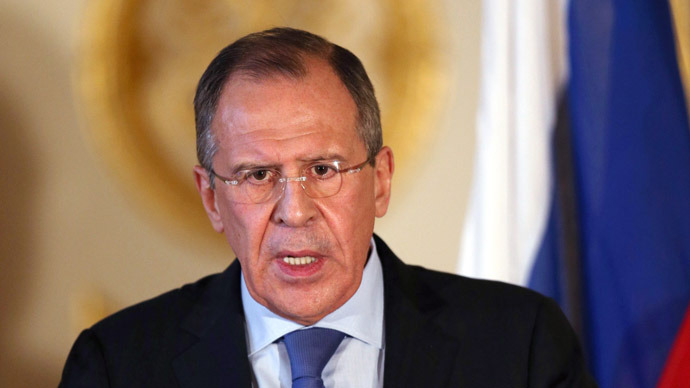Baku, Azerbaijan, Apr.22
Trend:
Russia supports both the normalization of Armenian-Turkish relations and settlement of the Nagorno-Karabakh conflict and thereby, normalization of Azerbaijani-Armenian relations and does much for this, Russian foreign minister said.
He made the remarks on the air of "Sputnik", "Echo of Moscow" and "This is Moscow speaking" radio stations.
He was answering the question about the possible impact of Russian President Vladimir Putin's upcoming visit to Yerevan on the country's relations with Turkey and Azerbaijan.
Russian president plans to take part in the events dedicated to the "100th anniversary" of "Armenian genocide" to be held Apr.24 in Yerevan, Kremlin said earlier.
"Each country makes decisions independently and Russia, in its turn, has made this decision long ago," he said. "As far as I know, many other countries have done the same thing."
Russian foreign minister said a visit can't be interpreted as a reason to spoil the relations with anyone.
Armenia and the Armenian lobby claim that Turkey's predecessor, the Ottoman Empire allegedly carried out "genocide" against the Armenians living in Anatolia in 1915. Turkey in turn has always denied "the genocide" took place. While strengthening the efforts to promote the "genocide" in the world, Armenians have achieved its recognition by the parliaments of some countries.
The conflict between the two South Caucasus countries began in 1988 when Armenia made territorial claims against Azerbaijan. As a result of the ensuing war, in 1992 Armenian armed forces occupied 20 percent of Azerbaijan, including the Nagorno-Karabakh region and seven surrounding districts.
The two countries signed a ceasefire agreement in 1994. The co-chairs of the OSCE Minsk Group, Russia, France and the US are currently holding peace negotiations.
Armenia has not yet implemented the UN Security Council's four resolutions on the liberation of the Nagorno-Karabakh and the surrounding regions.






